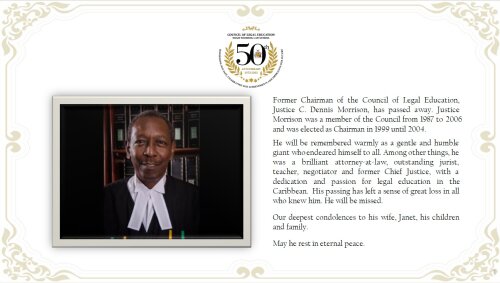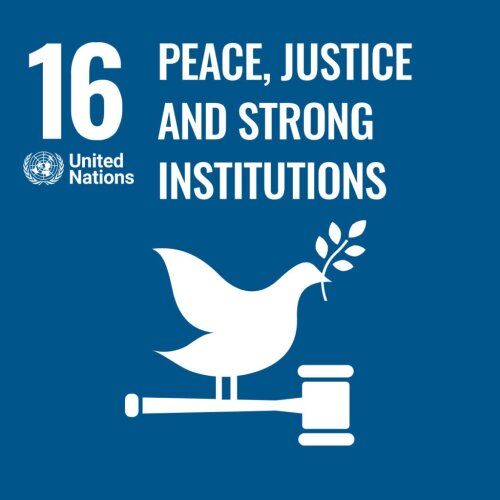Best Criminal Litigation Lawyers in Trinidad and Tobago
Share your needs with us, get contacted by law firms.
Free. Takes 2 min.
Or refine your search by selecting a city:
List of the best lawyers in Trinidad and Tobago
About Criminal Litigation Law in Trinidad and Tobago
Criminal Litigation in Trinidad and Tobago refers to the process of resolving criminal cases through the legal system. This involves matters such as arrests, investigations, trials, and appeals. The legal framework governing criminal proceedings in Trinidad and Tobago is based on the Criminal Procedure Act and the Constitution of the Republic of Trinidad and Tobago. It is essential for individuals accused of criminal offenses to seek legal representation to ensure their rights are protected and to navigate the complex legal process.
Why You May Need a Lawyer
There are several situations where individuals may require legal assistance in Criminal Litigation in Trinidad and Tobago. Some common scenarios include being arrested or charged with a criminal offense, being questioned by law enforcement officers, or needing guidance on the legal process. A lawyer can provide valuable advice, represent you in court, and help you understand your rights throughout the criminal proceedings.
Local Laws Overview
In Trinidad and Tobago, criminal laws are primarily contained in the Offences Against the Person Act, the Firearms Act, and the Dangerous Drugs Act, among others. These laws outline offenses such as murder, assault, drug trafficking, and firearm offenses, as well as the penalties for committing these crimes. It is crucial to be familiar with these laws and seek legal advice to navigate the criminal justice system effectively.
Frequently Asked Questions
1. What should I do if I am arrested?
If you are arrested, it is essential to remain calm and exercise your right to remain silent. You have the right to legal representation, so contact a lawyer as soon as possible to guide you through the process.
2. How can a lawyer help me with my case?
A lawyer can provide legal advice, represent you in court, negotiate on your behalf, and ensure your rights are protected throughout the legal process.
3. What are my rights during police questioning?
During police questioning, you have the right to remain silent, the right to legal representation, and the right to be informed of the charges against you. It is advisable to exercise these rights and seek legal advice before answering any questions.
4. What are the potential consequences of a criminal conviction in Trinidad and Tobago?
The consequences of a criminal conviction in Trinidad and Tobago can vary depending on the offense committed. They may include imprisonment, fines, probation, community service, or other penalties. A criminal conviction can also have long-term consequences on your reputation and employment opportunities.
5. How long does a criminal trial typically take in Trinidad and Tobago?
The duration of a criminal trial in Trinidad and Tobago can vary depending on the complexity of the case, the court's schedule, and other factors. Some trials may be resolved within a few months, while others may take years to conclude.
6. Can I appeal a criminal conviction in Trinidad and Tobago?
Yes, you have the right to appeal a criminal conviction in Trinidad and Tobago. An appeal must be lodged within a specified time frame after the judgment is delivered. It is advisable to seek legal advice to determine the grounds for appeal and navigate the appellate process effectively.
7. How do I find a qualified criminal defense lawyer in Trinidad and Tobago?
You can find a qualified criminal defense lawyer in Trinidad and Tobago by seeking referrals from friends or family, contacting the Law Association of Trinidad and Tobago, or conducting online research to identify reputable lawyers with experience in criminal litigation.
8. What is the difference between a misdemeanor and a felony in Trinidad and Tobago?
In Trinidad and Tobago, offenses are categorized as either summary offenses (misdemeanors) or indictable offenses (felonies). Summary offenses are less serious crimes that are heard in the Magistrates' Court, while indictable offenses are more severe crimes that are heard in the High Court.
9. Can I represent myself in a criminal case in Trinidad and Tobago?
While individuals have the right to represent themselves in court, it is not advisable in complex criminal cases. Legal proceedings can be complicated, and having a qualified lawyer can significantly impact the outcome of your case and ensure your rights are protected.
10. What should I do if I am unsure about my legal rights in a criminal case?
If you are unsure about your legal rights in a criminal case, seek legal advice from a qualified lawyer in Trinidad and Tobago. A lawyer can provide information on your rights, guide you through the legal process, and represent your interests in court.
Additional Resources
For more information on Criminal Litigation in Trinidad and Tobago, you can contact the Law Association of Trinidad and Tobago, the Trinidad and Tobago Police Service, or consult legal resources such as the Criminal Procedure Act and the Laws of Trinidad and Tobago website.
Next Steps
If you require legal assistance in Criminal Litigation in Trinidad and Tobago, it is essential to contact a qualified lawyer as soon as possible. A lawyer can provide you with legal advice, represent you in court, and help you navigate the criminal justice system effectively. Remember to exercise your rights, seek legal representation, and follow the guidance of your lawyer throughout the legal proceedings.
Lawzana helps you find the best lawyers and law firms in Trinidad and Tobago through a curated and pre-screened list of qualified legal professionals. Our platform offers rankings and detailed profiles of attorneys and law firms, allowing you to compare based on practice areas, including Criminal Litigation, experience, and client feedback.
Each profile includes a description of the firm's areas of practice, client reviews, team members and partners, year of establishment, spoken languages, office locations, contact information, social media presence, and any published articles or resources. Most firms on our platform speak English and are experienced in both local and international legal matters.
Get a quote from top-rated law firms in Trinidad and Tobago — quickly, securely, and without unnecessary hassle.
Disclaimer:
The information provided on this page is for general informational purposes only and does not constitute legal advice. While we strive to ensure the accuracy and relevance of the content, legal information may change over time, and interpretations of the law can vary. You should always consult with a qualified legal professional for advice specific to your situation.
We disclaim all liability for actions taken or not taken based on the content of this page. If you believe any information is incorrect or outdated, please contact us, and we will review and update it where appropriate.
Browse criminal litigation law firms by city in Trinidad and Tobago
Refine your search by selecting a city.











